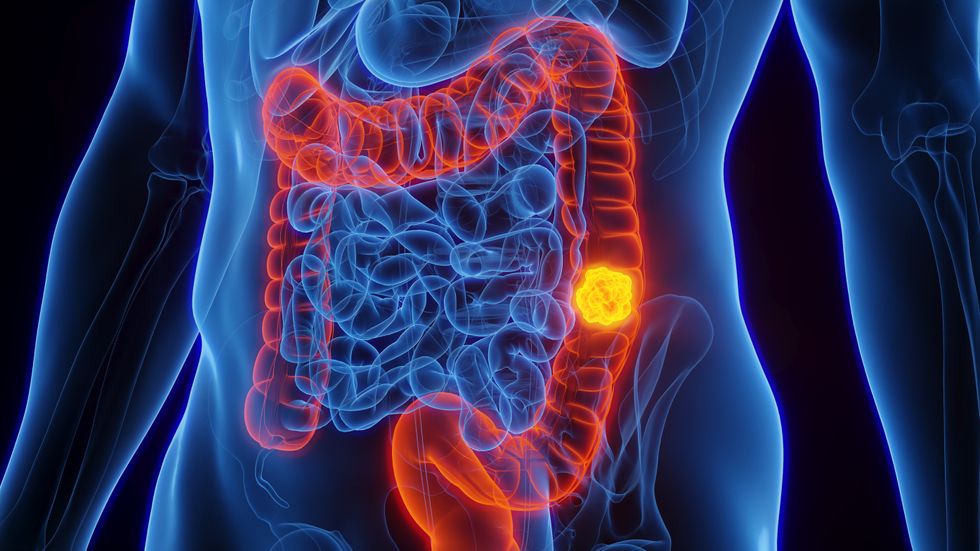Over-the-counter pill could halve risk of colon cancer, British study reveals

WATCH NOW: Boots relaunches free 50 minute health MOT service for adults over 40
|GB News
Only a quarter of those with the condition take the beneficial pill due to the associated side effects
Don't Miss
Most Read
A British study has found that low-dose aspirin can halve the risk of bowel cancer in people with Lynch syndrome, delivering the same protective benefits as higher doses while significantly reducing side effects.
The research demonstrates that daily doses of just 75 to 100mg - commonly known as 'baby aspirin' - provide identical protection to the 600mg doses used in previous studies.
The findings offer particular hope for the 175,000 people across the UK living with Lynch syndrome, an inherited condition that dramatically increases lifetime cancer risk.
Currently, only around a quarter of those with the condition take aspirin, often due to concerns about side effects including indigestion, ulcers and kidney problems.
 Over-the-counter pill could halve risk of colon cancer, British study reveals
Over-the-counter pill could halve risk of colon cancer, British study revealsThe Newcastle University-led research involved 1,879 participants with Lynch syndrome who were administered three different aspirin dosages to determine optimal cancer prevention levels.
Professor Sir John Burn, who spearheaded the study with funding from Cancer Research UK, confirmed that the smallest dose proved equally effective as larger amounts.
"The trial now tells us that aspirin can prevent bowel cancer at lower doses, minimising the chances of side-effects whilst offering vital protection," Professor Burn stated.
He also emphasised that "too many people are missing out on a potentially life-changing opportunity to prevent cancer."
The study represents a significant advancement in cancer prevention research, providing evidence that effective protection can be achieved with minimal risk of adverse reactions.
LATEST DEVELOPMENTS
Lynch syndrome affects approximately 175,000 individuals across the United Kingdom and is responsible for roughly three per cent of all bowel cancer cases nationally.
The inherited genetic condition substantially elevates the likelihood of developing various cancers, including bowel, womb, ovarian and prostate cancers, with patients often receiving diagnoses before reaching 50 years of age.
Nick James, aged 46, exemplifies the personal impact of this research breakthrough after discovering his Lynch syndrome diagnosis through genetic testing. Having witnessed the devastating effects of cancer throughout his family, James became the first participant to enrol in the trial.
"Finding out I had a faulty gene that causes Lynch syndrome was extremely daunting," James revealed. "But taking part in this trial has given me hope that there's something that can reduce the chances of me and others developing cancer."

Bowel cancer continues to claim nearly 17,000 lives every year in Britain
|GETTY
Following these research findings, experts are now calling for urgent updates to NHS prescribing guidelines to enable more high-risk patients to benefit from aspirin's protective effects.
Professor Sir John Burn also confirmed that researchers are "engaging with the regulators to change prescribing guidelines so that aspirin can be used more widely for people with a high risk of bowel cancer".
The push for guideline changes comes as bowel cancer continues to claim nearly 17,000 lives annually across the UK. Particularly concerning is the rising incidence among younger adults, with those born in 1990 facing three times the risk of developing bowel cancer compared to individuals born in the 1950s.
"We have a chance to give more people with Lynch syndrome protection which would reduce their fear of bowel cancer in the future," Professor Burn emphasised.










